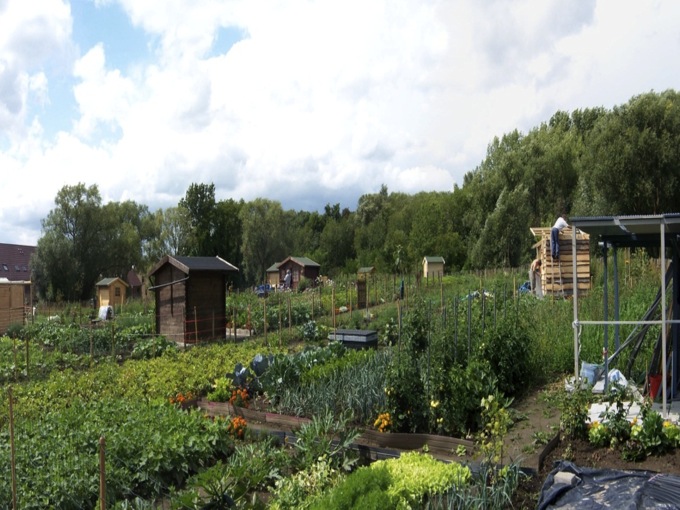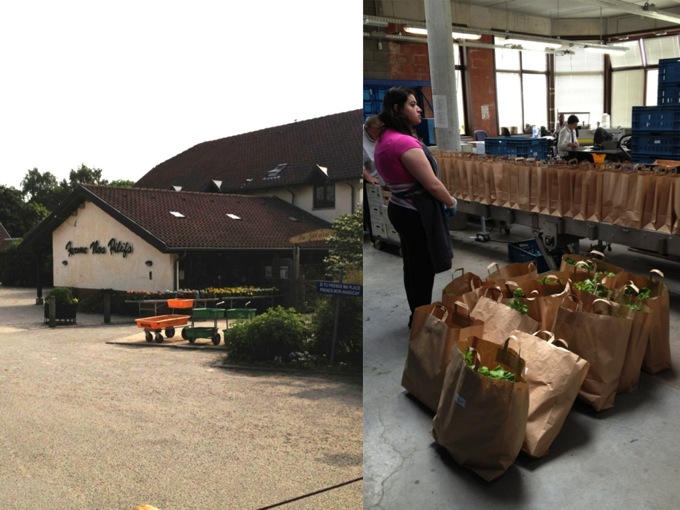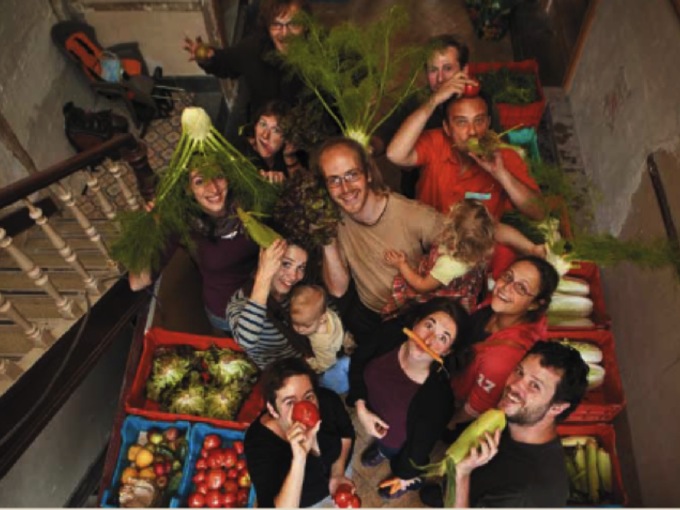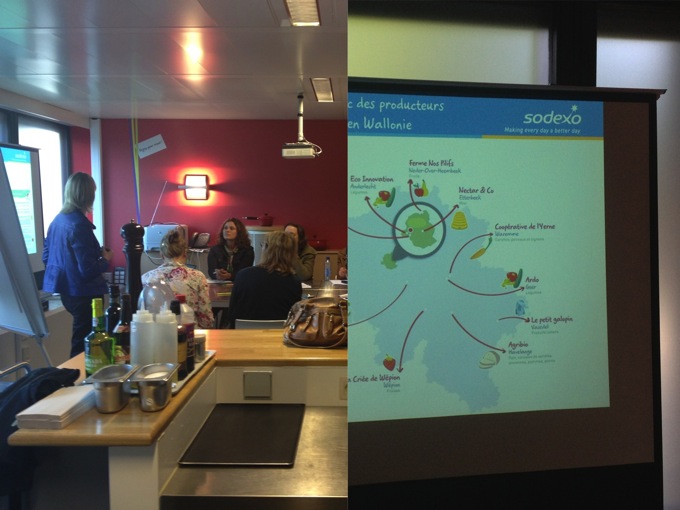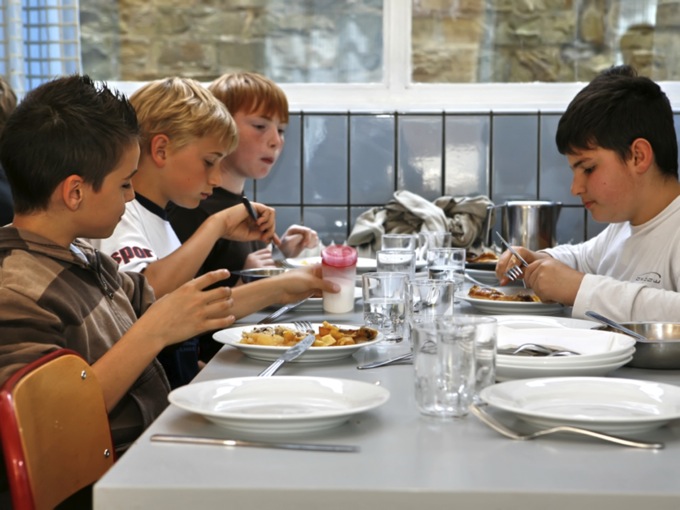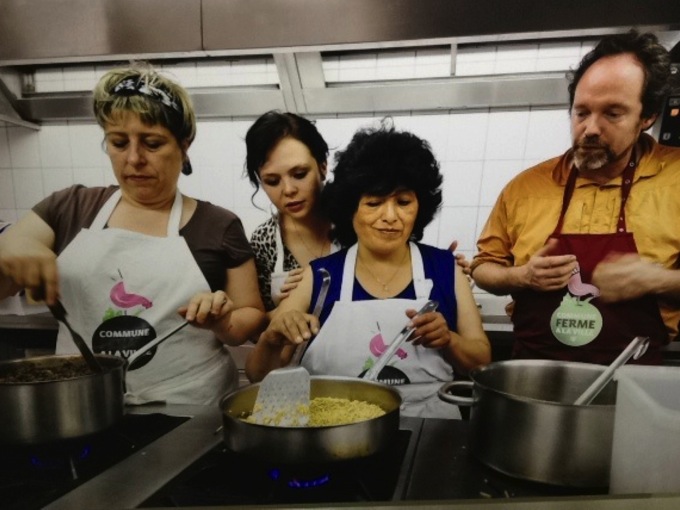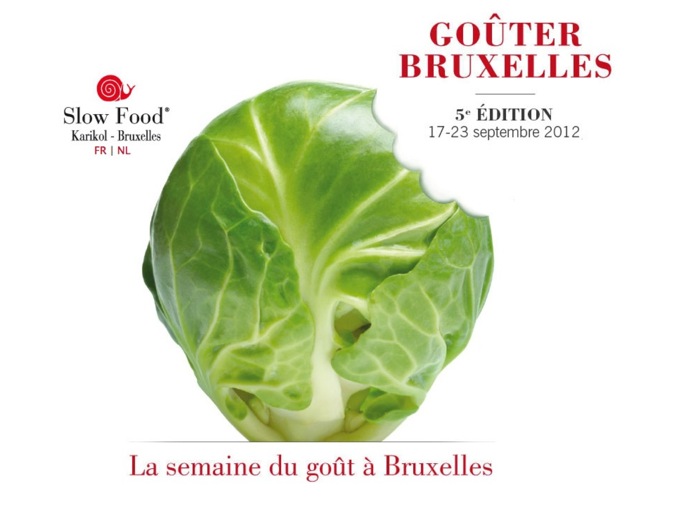Brussels / food and sustainability
For many years, Brussels has taken numerous actions to address the environmental challenges specific to a green modern city-region. For example, as a signatory of the “Covenant of Mayors” Brussels aims to become a low carbon city by 2025. After having engaged in sustainable food research and actions for several years, “sustainable food” was explicitly established a regional priority in a governmental declaration in July 2009.
The declaration stressed notably a focus on sustainable gastronomy as a means for attracting tourism and the need to develop sustainable urban agriculture, food transformation, distribution, food services and health education thank to public food procurement in canteens. Calling for a strategic plan to be drawn up involving all stakeholders of the food sector and an inventory of initiatives, the declaration also stressed the role of canteens in educating about healthy, balanced and environmentally friendly diets.
The food system plays an important economic role. There are more than 25.000 jobs in the food service sector, 6000 in the food industry, 500 in production and plenty others in the distribution sector. The food industry represents 10% of industrial employment in Brussels and is the third industrial sector in the Region in terms of jobs. Some businesses are already engaged in Sustainable Food and employ 2.500 persons in Brussels Capital Region, of which about 1.000 are in delivering and the remainder in catering and processing.
Growing
Agricultural space is rare in the city (268 hectares – potatoes, wheat, and barley), among which only 2% is organic crop production .There are 7 real farms, 4 pedagogical farms and an urban agroecological farm on the territory.
All green spaces combined cover 8000 hectares including: 32% private gardens, 12% public gardens, 7% brown-fields, 7% farmlands, 4% playgrounds, 3% railway embankments, 2% cemeteries, 3% next to road.
On-going actions on Growing supported by Brussels Environment notably focus on self-production through individual and community vegetable gardens and support to educational farms.
| Allotment Garden Action Programme | Brussels Environment has allocated since the 1990s 190 vegetable plots in parks available for households. Through a call for proposals, funds have been allocated for the launch of new community vegetable gardens (16 launched in 2 years). The association “Le Début des Haricots” is mandated to support these community gardens. It enables a self-production of produce that is healthy and cheaper without the need for fertilizers and transport and creates social ties, setting an example for park visitors. Currently, 170 people are on waiting lists demonstrating a great interest among inhabitants.Globally, 0.79 % of green spaces are devoted to kitchen gardens. More or less 35% of inhabitants own a garden and about 85% have an access to an open space such as gardens, terraces or balconies. Gardening activities are common in Brussels, 19% of the people have a vegetable patch in their gardens.
There is limited space available to maintain or expand urban production, especially since there is a competition for land with housing (given the population explosion) and concern regarding soil and air pollution. Therefore, commercial production is a challenge in the Region. Private spaces and unexpected types of public land could be used. There is clearly a will to maintain and relocate part of production into the city and foster fresh, local and seasonal consumption.
Urban Agriculture for commercial purposes is a small but rising sector in Brussels. A growing number of initiatives are being started.
Delivering
Retail tends to be dominated by large chains and, as said in introduction, there are many jobs in the processing and delivering sectors.Food service businesses purchase foodstuffs at the wholesale market and in specialised supermarkets. Similarly 84% of Households get food at the supermarket. Some low income people have access to social groceries. It is possible to find organic food in a lot of places (smaller shops or groceries, but also in supermarkets, in markets, via organic basket collection points, internet orders).
On-going support to Delivering by Brussels Environment notably supports sustainable food distribution projects.
| Nos Pilifs farm | Located in Neder-Over-Heembeek, Nos Pilifs farm is an education farm and organic retail platform that combines commercial activities and social integration providing jobs for 120 disabled people. The mix between business and integration at work is an interested example of social business. The farm recently launched a platform delivery scheme of organic fresh fruits and vegetable bags.Another kind of procurement for local food is possible through the GASAP Network (Groupe d’Achat Solidaire de l’Agriculture Paysanne). It is an umbrella organisation of individual citizen groups that gather around a farm and engage themselves to regularly purchase a vegetable and/or fruit basket during a whole season (a type of Community Supported Agriculture – CSA).
There seems to be a great potential for developing new kinds of connections between consumers and local producers for instance through organic farmers’ markets. Innovative solutions such as bike powered deliveries are breaking through.
Enjoying
Because Brussels is a cosmopolitan city, its cuisine is strongly influenced by ethnic diversity. The traditional gastronomy is well represented by “brasseries” that show the friendly aspect of food culture in Brussels.
40% of all meals are taken outside home which provides work for 6.000 businesses and 25.000 people. The Horeca (hotel, restaurants and café) sector is slowly evolving towards more sustainable practices with many new businesses embracing sustainable food principles.
However, businesses encounter difficulties in procurement of local food, logistics (how to keep up with a changing menu) and consumer expectations (difficulty to accept seasonality).
On-going Brussels Environment activities on Enjoying notably focus on supporting sustainable canteens (in companies, schools…), greening public food procurement, as well as developing, testing and disseminating tools and approaches for school children and households.
| Canteen eco-calculator | The private catering company Sodexo is currently providing half of the meals taken in canteens in Brussels. In response to Brussels Environment’s will to improve environmental performances, they are fine-tuning an eco-calculator that indicates the meal’s carbon footprint. Criteria considered include the product’s origin… They successfully tested the reduction of the average meat portion size in the European headquarters Toyota in order to decrease carbon impact.270.000 meals are served every day in canteens in Brussels. Since 2008, Brussels Environment has proposed three “sustainable canteen” courses for the kitchen staff of canteens. 94 canteens participated (representing almost 85,000 daily meals). Theoretical and practical training were regularly organised in this framework.
Concerning sustainable food, Brussels Environment launched awareness raising campaigns about seasonal vegetables, giving tips and recipes to empower citizens and children in food matters, to fight again food waste… The ambition of the city is to give everyone the opportunity to have access to fresh and healthy food with limited environmental impact.
| Sustainable food at schools | Schools are in demand of sustainable food. Two axes are developed by Brussels Environment- Background work with canteens: 15 schools and 2 providers of school meals were integrated into the program “sustainable canteen”. More than 30 000 meals/day are concerned. – Raising awareness and changing behaviour of students and educational staff: In 2011-2012, about 6000 students were involved (cycle of three animations on “less food wastage”). In 2012-2013, more than 6000 new students will be involved in projects funded directly by Brussels Environment: 16 schools (5057 students) who develop their own project “sustainable food”.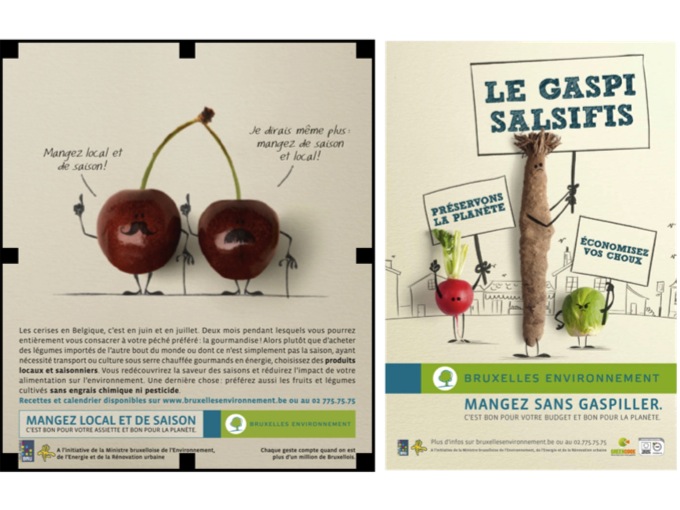
The success of the call for sustainable food projects (50 projects submitted in 2011, 82 in 2012) shows the popularity of the topic to a wider public.
| Food Challenge | “The food challenge” is an initiative of Etterbeek (one of the 19 municipalities of the region), supported by Brussels Environment in the context of the call for sustainable food projects in 2011. The idea was to create dynamics around sustainable food by empowering families to become ambassadors of the topic. During 6 months, 12 households were involved every fortnight in activities such as cooking classes, taste workshops…Behaviours and view on food quickly evolved. | Rencontre des continents | This organisation aims at developing positive relations between different cultures. One of the main tools is food because it reveals a lot on how society works. Many themes are addressed: the connection between the economic and social environment, the sanitary crisis, individual and collective engagement.
| Rencontre des continents | This organisation aims at developing positive relations between different cultures. One of the main tools is food because it reveals a lot on how society works. Many themes are addressed: the connection between the economic and social environment, the sanitary crisis, individual and collective engagement.
Even in tourism, many actors seek to create the conditions to develop a sustainable food culture image. The region promotes Brussels’ Gastronomy through the Brusselicious 2012 year of gastronomy and the Taste Brussels week involving restaurants;
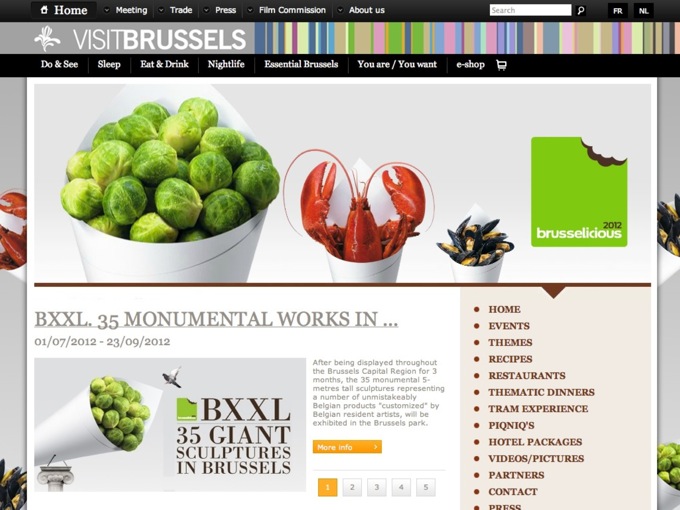 | Brusselicious | In 2012, Brussels organises the year of gastronomy as a year-long food festival with events, demonstrations by great chefs, essential dining spots, products created for the occasion… . This initiative invites inhabitants and visitors to reconsider the way to eat well.
| Brusselicious | In 2012, Brussels organises the year of gastronomy as a year-long food festival with events, demonstrations by great chefs, essential dining spots, products created for the occasion… . This initiative invites inhabitants and visitors to reconsider the way to eat well.
